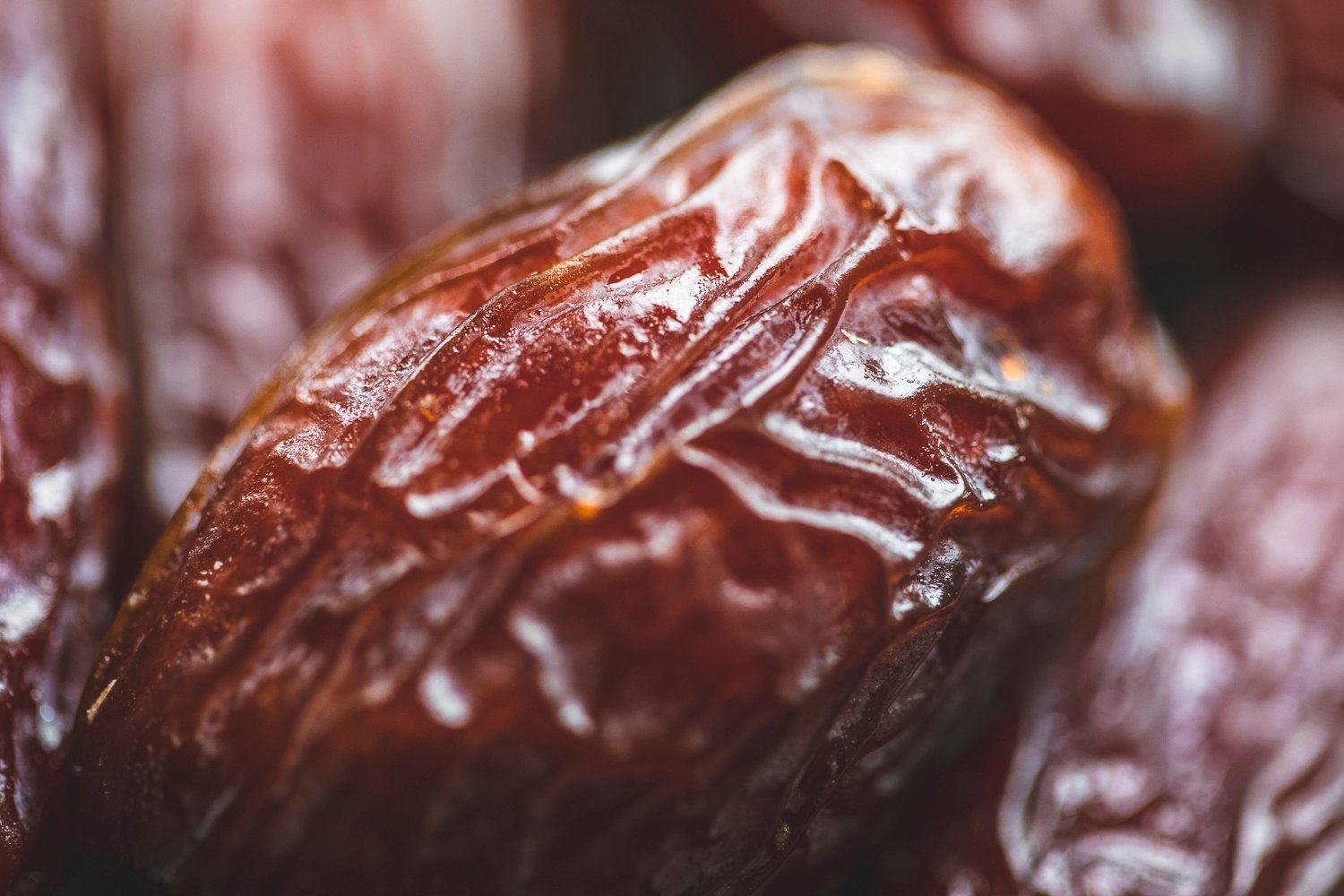
Medjool Dates: the Storied History of Dates Across Cultures
Introduction
In the realm of fruits, few hold the same allure and historical significance as dates. These sweet, versatile fruits have been cherished by civilizations for millennia, nourishing bodies and enriching cultural traditions. Within the vast world of dates, one variety reigns supreme: the Medjool date. This blog post unveils the captivating characteristics of Medjool dates and embarks on a captivating exploration of the historical significance of dates across diverse cultures.
The Allure of the Medjool Date: A Sensory Experience
The Medjool date, hailing from Morocco, is a true feast for the senses:
- Exquisite Taste: Characterized by a rich, complex sweetness with a hint of caramel, Medjool dates offer a taste unlike any other.
- Indulgent Texture: These dates boast a delightful combination of soft, melt-in-your-mouth flesh and a satisfyingly chewy bite.
- Visual Appeal: Their large size, deep brown color, and naturally glossy sheen make them a visual delight.
Beyond the Taste: The Historical Significance of Dates
Dates transcend their deliciousness, holding immense historical significance across various cultures:
- Ancient Staple: Archaeological evidence suggests dates were cultivated as early as 3,000 BC in Mesopotamia, serving as a crucial food source for ancient civilizations.
- Symbol of Life and Fertility: In many cultures, the date palm, which bears the fruit, is considered a symbol of life, fertility, and prosperity. This symbolism is reflected in ancient art, religious texts, and even architecture.
- Religious Significance: Dates hold particular significance in several religions. In Islam, they are traditionally consumed to break the fast during Ramadan, while Judaism associates them with the celebration of Tu B’Shvat, the “New Year of the Trees.”
- Cultural Currency: Throughout history, dates have served as valuable trade goods, fostering cultural exchange and contributing to the development of trade routes.
Exploring Specific Cultural Connections:
- Middle East and North Africa: Dates remain a staple food and a symbol of hospitality in many Middle Eastern and North African countries. They are often offered to guests as a gesture of welcome and generosity.
- Mediterranean and Europe: Dates have been part of the Mediterranean and European culinary landscape for centuries, incorporated into various dishes and desserts.
- South Asia: In South Asia, dates are consumed during religious festivals and used in traditional sweets and confectionary.
A Deeper Dive into Cultural Connections:
1. The Date Palm: A Symbol of Resilience and Sustainability:
The date palm, bearing the coveted fruit, thrives in harsh desert environments, showcasing remarkable resilience. This ability to flourish in arid conditions has earned it a place of deep respect and admiration in many cultures. It symbolizes:
- Perseverance and adaptation: The date palm’s ability to survive and produce fruit in challenging environments serves as a powerful symbol of overcoming adversity and adapting to difficult circumstances.
- Sustainability and resourcefulness: Date palms require minimal water and resources to thrive, making them a valuable source of food and income in arid regions. They also offer shade and protection from the harsh sun, contributing to a sustainable ecosystem.
2. Beyond Religious Significance: Dates in Rituals and Celebrations:
Dates play a crucial role in various cultural celebrations and rituals beyond their religious significance:
- Marriage Ceremonies: In some cultures, dates are exchanged during wedding ceremonies, symbolizing sweetness, fertility, and a prosperous future for the couple.
- Hospitality and Gift-giving: Offering dates to guests is a common practice in many cultures, signifying warmth, generosity, and respect. Dates are also frequently given as gifts during festivals and special occasions.
- Traditional Dishes and Culinary Delights: Dates are incorporated into a diverse range of traditional dishes around the world, from savory stews and tagines to sweet pastries and desserts. Each culture has its unique culinary creations featuring this versatile fruit.
Intriguing Facts about Dates:
- The “Fruit of Kings”: Medjool dates were once considered a luxury food reserved for royalty and the wealthy due to their rarity and exquisite taste.
- Natural Sweetener: Dates are a natural and healthy alternative to refined sugar, offering a rich sweetness and a good source of fiber and nutrients.
- Ancient Medicine: Dates have been used in traditional medicine for centuries, believed to possess various health benefits, including aiding digestion and promoting overall wellbeing.
- Pollination Power: Date palms rely on a unique pollination process involving wind and a tiny insect called the date palm beetle. This fascinating natural collaboration ensures the production of these delicious fruits.
Conclusion
From the captivating allure of the Medjool date to the rich tapestry of their historical significance across cultures, dates offer a unique and fascinating journey. As we appreciate their taste and versatility, we also gain a deeper understanding of the diverse cultural narratives they weave. So, the next time you savor a date, remember the long and storied history that lies behind this remarkable fruit.
Key Highlights:
- Medjool dates are known for their exquisite taste, indulgent texture, and visual appeal.
- Dates hold immense historical significance, dating back to ancient civilizations.
- They symbolize life, fertility, and prosperity in various cultures.
- Dates hold religious significance in Islam and Judaism, among others.
- They have served as valuable trade goods and are deeply woven into the culinary traditions of various regions.